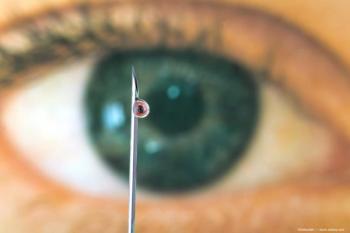
Thyroid disorder may heighten risk of glaucoma
Patients with glaucoma were 38% more likely to have had a thyroid disorder at some point in their lives than those without, according to a study published in the British Journal of Ophthalmology.
Birmingham, AL-Patients with glaucoma were 38% more likely to have had a thyroid disorder at some point in their lives than those without, according to a study published in the British Journal of Ophthalmology. Statistics were gathered from 12,376 people who participated in the 2002 National Health Interview Survey.
Participants were asked whether they ever had been diagnosed with a thyroid gland disorder or glaucoma. Slightly more than 4.5% of participants said glaucoma was diagnosed and 12% said a thyroid problem was diagnosed. The percentage of patients with glaucoma who said they had suffered a thyroid problem was 6.5% to 4.4% who had not.
An underactive thyroid can promote chemical deposits in the blood vessels serving the eye, which can spark an increase in IOP, said study authors.
Patients with thyroid problems should see an ophthalmologist or make their ophthalmologist aware of their thyroid condition, said lead researcher Gerald McGwin, PhD, vice chairman of the Department of Ophthalmology, University of Alabama School of Medicine, Birmingham.
"Somebody who has a history of thyroid problems and has not seen an ophthalmologist may have a heightened level of concern about their eyesight," he said.
Newsletter
Don’t miss out—get Ophthalmology Times updates on the latest clinical advancements and expert interviews, straight to your inbox.





























